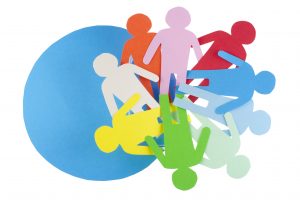
Welcome to my space for the reflections on topic 3 – Learning in communities – networked collaborative learning.
I joined the webinar “Learning in communities” on Monday the 7th November with Kay Oddone (Charles Sturt University, Australia) & Lotta Fröjdfeldt (Mälardalen University, Sweden). Little did I know, once again an inspiring and wonderful hour would pass so quickly on my ONL journey. I really believe that learning is a social act rather than an individual as such. I learn better in a team and learn from as well as with others. As a librarian, I’ve been teaching classes on site for years and in the last two years that has mostly moved to the online space. So, learning in communities, also known as networked collaborative learning, is a type of education that involves individuals working together in small groups or larger networks to learn new skills and knowledge. This is exactly what my teaching sessions are about. My groups are clearly predefined, and I may give a database introduction to about 30 people for 90 minutes. This learning can take place online via Zoom and I have my very own small online communities for this time. One of the key advantages of learning in this communities is that I allow my students in a twenty-minute breakout room to share their knowledge and experiences with the others about the database, which helps to deepen their understanding of the database right away. Additionally, working with others can provide opportunities for my students to receive feedback on their work, which can help to improve their skills and knowledge. The students I have are beginners, who are 2 months in theirs studies. So, another benefit of networked collaborative learning is that it can help to build strong connections and relationships between my students, which can foster a sense of community and support. This can be particularly important for students who may feel isolated or disengaged from traditional forms of education. The input that I give regarding the database is really small and part of a bigger online course. Nether than less I think that, learning in communities offers a number of benefits for learners, including the ability to share knowledge and experiences, receive feedback on their work, and build connections with others. As a result, this approach to learning has become increasingly popular in recent years. And if you ask me, it’s the future of learning. Because… Learning is a social act – don’t you think?
Bibliography
ONL222 Topic 3: Learning in communities – networked collaborative learning. (2022, Oktober 31). Open Networked Learning. https://www.opennetworkedlearning.se/onl222-course-overview/onl222-topic-3-learning-in-communities-networked-collaborative-learning/